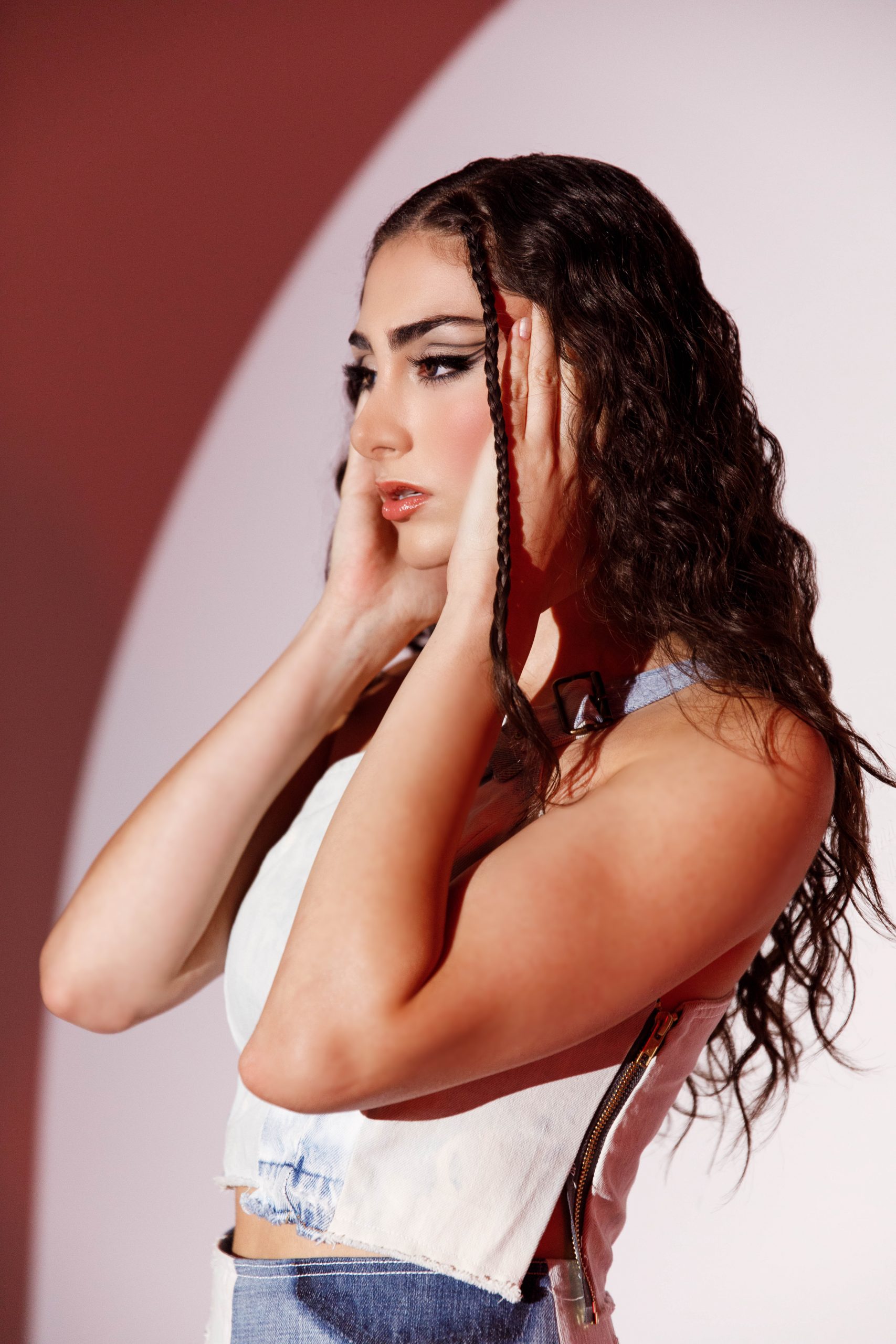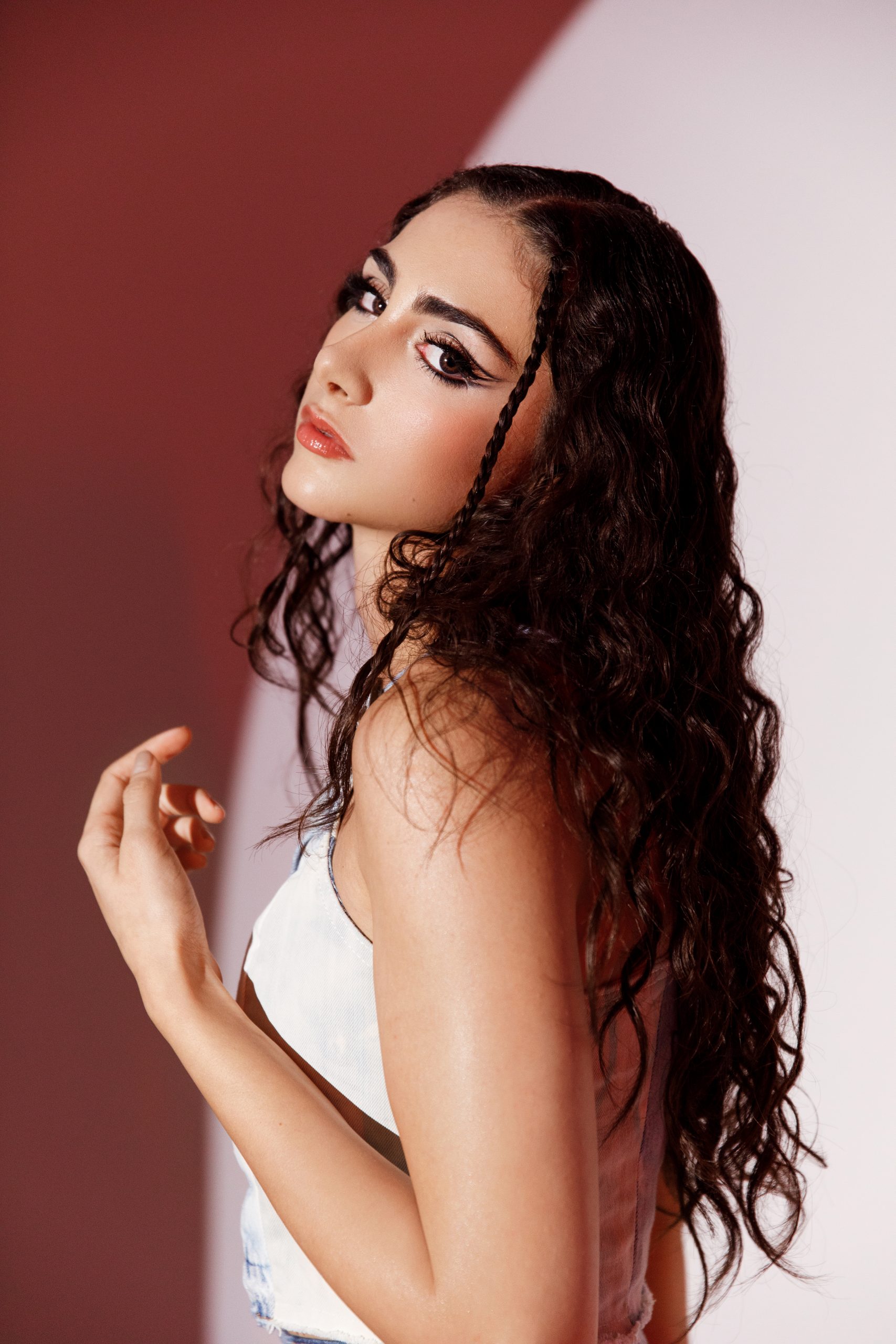Generating streams in the millions independently, the Los Angeles-based singer, songwriter and multi-instrumentalist Anna Margo, may not be sure of the path to follow, but she is definitely building it with each step with perseverance and firmness, and In this deep and honest interview, the artist showed us part of her soul, her achievements, her fears, and her desire to tell stories.
She has lived through hard times in regards to mental health and it is precisely one of the pillars of her music, the ability to face them and tell every one of her experiences through it. Today everything feels like changing in her favor.
“I feel I’m in a really crucial stage in my career where the ball has just started rolling and I can’t slip up. I have a lot of music to finish, live performances coming up, and my family depending on me. It’s a lot of pressure and exhausting at times, but I love what I do and I’m savoring every second. I spend time with family or friends when I have the chance, but I don’t get to have much of a personal life outside of that at the moment.”

I would like to begin our conversation by asking you to describe your development as an artist. What influenced you, and what, on the contrary, interfered?
Growing up, I always knew I wanted to entertain, to tell stories, whether that was through music, books, or movies. Music just always came to me first, and has been my choice of self-expression for as long I can remember. What I think interfered early on in my career from pursuing the artist route, was that I had no idea who I was. I didn’t think my own “story” was interesting enough to tell, so I wrote what I thought people wanted to hear. I’d try to mimic whatever was popular at the time. I wrote love songs, even though I’d never been in love. Breakup songs, even though I’d never experienced one. Songs about being powerful, in spite of the fact that I had never seen myself that way. Although the music wasn’t terrible, it wasn’t real. And I think any genuine listener would have been able to pick up on that. The first truly honest song I wrote came to me a few years ago, out of pure necessity. I had suppressed so much, for so long, and had to get it out somehow. It resulted in a song called “Place”, and that was my real “aha” moment.
That was when I decided I really do have something to say, and was ready to go the artist route. I realized that it’s not about popularity. Someone, somewhere, will hear you, and understand. No matter what, a sad truth is far more interesting than a fabulous lie.
One of the things we love the most about you is the fact that you have studied music in a professional way. How has this worked in your favor?
My professional background has made a huge difference in my standing today as an artist. My classical background as a pianist instilled a unique discipline in me that I wouldn’t have otherwise, and it prepared me for this immense responsibility and journey I’m about to embarkon. It enlarged my palette as well, as far as creating and composing original music. Being able to play multiple instruments, produce the music myself, and record vocals on my own has also been a great advantage. No matter what, I’m always able to make progress. Being on lockdown in 2020 really put into perspective how important that kind of independence was. I work with other producers and writers out of my own desire to do so, because I value their input and their incredible work, not because I need to. This makes the collaborative process that much more enjoyable. Right now I’m enrolled in Berklee College of Music studying music production, songwriting, and engineering. I plan to graduate in the next couple years, but I don’t intend to ever stop learning.
“I’m a bad, bad friend to me” is one of the phrases in ‘Bad Friend’. What is the conceptualization behind this song? What were you trying to convey through it?
Bad Friend is one of my favorite songs of mine and probably the fastest I’ve ever written because I wasn’t coming up with any new thoughts. I was just confessing to things I’ve known
about myself my entire life, and it was too much fun. There’s something freeing about admitting your worst traits, habits, and fears, in a shameless, almost cynical way. Because we all have them. It was something that helped me change for the better, and take control of my life. You are, and always will be, your own most important friend, or your worst enemy. It’s so easy to feel sorry for yourself, and it’s so easy to blame everyone and everything else for why your life is going in a certain direction, and why you’re not satisfied with your own reality. But to admit your own weaknesses is a real strength. Writing this song helped me realize I was responsible for a lot of my own unhappiness, and I was capable of so much more than I gave myself credit for. It was like “waking up” for the first time.
People say that art is the most honest portrait of the one who creates it and if we look a bit backward, we ́ll find “Place”, a powerful song, with deep lyrics. Both ‘Bad Friend’ and ‘Place’ seem to be related to mental health. The question is, do you think mental health affects art? Does it affect your work?
I think mental health not only affects art, but it creates art. When I wrote Place and Bad Friend, there was little to nothing significant going on in real life, but in my mind, there was complete chaos. There was a void where my heart was supposed to be. It was a sadness I didn’t understand or know how to overcome. And in my culture, mental health is a taboo subject. It’s not spoken of a lot; it’s barely considered real. So, I couldn’t properly talk through it either. I’ve been lucky to have music as an outlet to channel this into, because I don’t know how I would’ve pulled through otherwise. As I mentioned earlier, “Place” was the song that pushed me in the right direction, and paved the way for all the music I’ve created since then. And even though not every song is about mental health, they’re true to my unique life experiences as they happen, from my inner perspective.
Do you believe that music can help people? If so, how?
Music can absolutely help people. It has for thousands of years, and it’s an integral part of our existence. Music is meant to heal. It heals what medicine can’t. If a song of yours can do that for someone, even if it’s just one person, then you’ve done something right. Our ability to create and appreciate music is what convinced me early on in my childhood that there must be a higher power out there somewhere. Why does one person enjoy a certain genre of music, but another person prefers something different? Music helps people understand themselves better, it consoles us when nothing else can. Without music, art, or literature, the world would just be a miserable and dark place.
What is your process for writing a song? How do you combine it with the music? What comes first?
Usually, I come up with a chord progression first, sitting at the piano, or with my guitar. If I can’t come up with anything that way, I’ll go through loops on Splice. Once inspiration sparks, I focus on the topline melody. I always have my phone on, recording everything during that process because these melodies go as fast as they come. I’ll listen back, and keep at it for a while to see if I can beat whatever I currently have. Once I’m set on the structure of the song and have my topline, I write lyrics. The music so far will have already evoked some kind of feeling or emotion for me, and whatever song concept I choose always reflects that tone. It does help that my songs so far are telling an ongoing narrative, based on the last couple of defining years of my life. With this in mind, I already have my next few songs mapped out. I’ll write whatever I want to write about at the moment, then figure out where that particular song fits in this specific story I’m telling. It’s like putting puzzle pieces together until there’s a clear picture. The production process is different every time. I like building the production gradually around the song as it’s getting fleshed out. But it all depends if I’m working on it alone, or with another producer. In that case, I’m more courteous of their process, and the pace at which they prefer to work.
Do you feel you have found your style, your sound, that specific essence that identifies your music?
I can’t say I’ve landed on one specific style or sound, but I do think I’ve found what works for me. Every song of mine is different from the last, but they still make a lot of sense put together. There’s an “essence” there for sure, a consistent feeling I can’t pinpoint, that all my music has in common. I have certain habits as a songwriter that probably explain why. I’m usually drawn to the more emotional, cinematic chord progressions, and I like to keep a balance between natural and electronic instrumentation. And you’ll always hear a lot of layered vocal harmonies in any song of mine. But every record has a new element you haven’t heard from me before, which I think is healthy. We’re never the same person we were yesterday. We’re constantly learning and changing, and my music evolves with me.
If we take a look at your playlist right now, what will we find?
A lot of people say you can better understand who a person is by looking at their playlist. I’m not sure if that rings true for me, because mine is very, very random. I listen to everything, but I have a tendency to fixate on one specific artist or genre, or even one song, until I’m sick of it. Then I latch onto something completely different. For context, the most recent fixation was Lizzy Mcalpine, and the one right before was Baby Keem. There’s no correlation. The one genre I would say consistently sticks for me is classical music, and film scores. It’s the one category I never tire of, and for me, it’s the ultimate anxiety killer. My favorite composers are Rachmaninoff, Beethoven, Chopin (classical), and Hans Zimmer, Rupert Gregson Williams, and Ramin Djawidi (film scores).
Besides having a long-lasting impact or legacy over time, Is there a specific goal you
want to achieve as a singer, like going to a festival, receiving a certain award, or sharing the stage with an artist?
One major dream of mine is selling out a show in LA. Whether it’s a hundred people or a thousand, it doesn’t matter. But I can’t imagine how moving it is being on stage in your home city, and hearing the words you wrote sung back to you. That’s a joy I can’t fathom. I’m really excited to start performing and touring in general, to meet new people, see new places, and to share the stage with my band. The few concerts I’ve been to as a fan were easily the happiest days of my life. I’ve always wondered what it feels like on the other end.

Story: Mariana González Photos: Courtesy of the artist
CONNECT ANNA MAGRO
